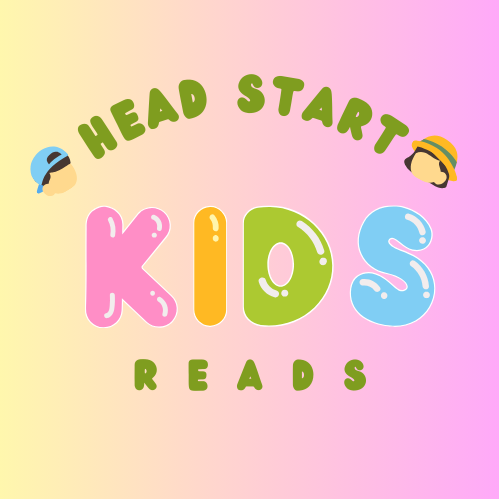Parental support plays a pivotal role in shaping a child’s early reading success. As children begin their literacy journey, the encouragement, involvement, and guidance of parents can make a significant difference in how quickly and effectively they learn to read. The foundational skills acquired in the early years have long-term effects on a child’s overall academic performance and self-confidence.
In this article, we’ll explore the importance of parental support in early reading development and provide actionable tips for fostering your child’s reading success from the very beginning.
1. The Crucial Role of Parents in Early Literacy Development
Parents are often the first teachers in a child’s life. From birth, children learn language and communication by observing and interacting with their parents. Early literacy development begins with exposure to words, sounds, and language patterns, all of which are greatly influenced by a child’s home environment.
Why Parental Support is Critical:
- Language Exposure: Parents expose children to rich language experiences through everyday conversations, storytelling, and reading aloud. This builds vocabulary and language comprehension.
- Emotional Support: A positive and encouraging attitude from parents instills confidence in children, making them more willing to engage with books and reading activities.
- Motivation: Parents can inspire a love of reading by making it a fun and enjoyable experience. This early motivation is essential for fostering lifelong literacy habits.
By actively participating in their child’s early reading experiences, parents provide the foundational tools necessary for successful reading development.
2. Reading Aloud: A Cornerstone of Early Reading Success
Reading aloud to your child is one of the most effective ways to foster early reading success. It introduces them to new vocabulary, sentence structures, and storytelling techniques while also strengthening the bond between parent and child.
Benefits of Reading Aloud:
- Vocabulary Expansion: Reading aloud exposes children to words they may not encounter in daily conversation, enriching their vocabulary.
- Improved Listening Skills: Listening to stories helps children develop focus and attention, which are essential for learning to read.
- Enhanced Comprehension: When parents read aloud, they can explain complex words or concepts, helping children understand the meaning behind the text.
- Emotional Connection: Reading together creates a special bonding moment that makes children associate reading with warmth, comfort, and enjoyment.
Setting aside time each day to read aloud establishes reading as an important and enjoyable part of your child’s routine, boosting their early literacy skills.
3. Creating a Reading-Friendly Home Environment
One of the most impactful ways to support your child’s early reading success is by creating a reading-friendly environment at home. A home that encourages reading helps children understand the value of literacy and makes it an accessible part of daily life.
How to Create a Reading-Friendly Environment:
- Bookshelves and Reading Nooks: Keep books readily available by creating a designated reading space with shelves filled with age-appropriate books. A cozy reading nook with cushions and good lighting will make reading inviting.
- Variety of Books: Offer a variety of books, including picture books, storybooks, and beginner readers, to keep your child’s interest alive. Rotate them regularly to maintain excitement.
- Daily Reading Routine: Incorporate reading into your daily routine by setting aside specific times for reading activities, such as bedtime stories or quiet afternoon reading sessions.
A home that celebrates reading helps instill positive reading habits from an early age and makes books an integral part of a child’s life.
Read Also
How Active Parenting Can Boost Your Child’s Reading Skills?

4. Engaging in Shared Reading Activities
Shared reading is another powerful tool for building early literacy skills. This involves parents reading with their children, asking questions, and encouraging discussion about the story. Engaging in shared reading allows children to be active participants in their reading journey, promoting comprehension and critical thinking.
Benefits of Shared Reading:
- Improves Comprehension: Asking open-ended questions during reading helps children think more deeply about the story and make connections between the text and their own experiences.
- Boosts Critical Thinking: When parents discuss plot twists or character motivations, they encourage children to analyze and reflect on the story.
- Encourages Interaction: Shared reading promotes conversation between parent and child, turning reading into an interactive and enjoyable activity.
By incorporating shared reading into your routine, you help your child develop essential comprehension skills and foster a deeper love for books.
5. Parental Involvement and Early Reading Confidence
Parental involvement is directly linked to a child’s confidence in reading. Children who receive positive reinforcement and encouragement from their parents are more likely to feel confident in their reading abilities and less likely to experience reading-related anxiety.
Ways to Build Reading Confidence:
- Praise Effort, Not Just Accuracy: Celebrate your child’s progress and effort, even if they make mistakes. Positive reinforcement builds confidence and a willingness to keep trying.
- Set Realistic Goals: Help your child set manageable reading goals and celebrate their achievements. This could be as simple as reading a short book independently or mastering new sight words.
- Encourage Independence: Gradually allow your child to read on their own, but remain available for support. Offering independence fosters self-reliance and boosts confidence.
The emotional and motivational support that parents provide is essential for helping children develop confidence in their reading abilities, leading to long-term academic success.
6. The Impact of Consistency on Early Reading Skills
Consistency is key when it comes to early reading success. Regular reading practice helps children improve fluency, comprehension, and vocabulary, while also reinforcing the habit of reading as part of daily life.
How to Maintain Consistency:
- Set a Daily Reading Schedule: Establish a daily routine where reading is a priority. Even 15 to 20 minutes of reading each day can have a significant impact on your child’s progress.
- Use Reading Logs: Encourage your child to keep a reading log to track the books they’ve read. This can serve as a visual motivator and a way to celebrate accomplishments.
- Incorporate Reading into Play: Include reading in everyday activities, such as reading recipes while cooking or finding words on a grocery list. This makes reading a natural part of daily life.
Consistent reading practice strengthens early literacy skills and helps children build confidence in their ability to read independently.
7. Technology as a Reading Tool for Parents and Children
In today’s digital age, technology can be a useful supplement to traditional reading methods. Many educational apps and tools are designed to engage young readers in interactive ways, making learning to read fun and effective.
Ways to Incorporate Technology into Reading:
- Audiobooks: Listening to audiobooks helps children develop listening comprehension skills and exposes them to new vocabulary.
- Educational Apps: There are a variety of reading apps that focus on phonics, letter recognition, and word formation. These can be a fun and interactive way to practice reading skills.
- eBooks: For tech-savvy families, eBooks can be a convenient way to encourage reading on the go.
While technology should not replace traditional reading, it can serve as a useful tool to enhance your child’s early literacy experience and keep them engaged.
8. Fostering a Lifelong Love of Reading
The goal of parental support in early literacy is not only to teach children how to read but also to foster a lifelong love of reading. Children who grow up in homes where reading is encouraged are more likely to become lifelong readers, which is essential for academic success and personal growth.
How to Foster a Lifelong Love of Reading:
- Make Reading Enjoyable: Focus on making reading a fun and enjoyable experience rather than a chore. Let your child choose books that interest them, even if they seem unrelated to academic subjects.
- Lead by Example: Children who see their parents reading are more likely to view reading as a positive and enjoyable activity. Set a good example by reading regularly yourself.
- Visit Libraries and Bookstores: Take your child on regular trips to the library or bookstore to explore new books and participate in storytime events.
When children associate reading with positive emotions and fun experiences, they are more likely to carry their love of reading into adulthood.
Conclusion: The Power of Parental Support in Early Reading Success
Parental support is essential for ensuring your child’s early reading success. By creating a reading-friendly home, engaging in shared reading, and providing consistent encouragement, you can lay a strong foundation for your child’s literacy development. Active parental involvement not only boosts reading skills but also instills a love for reading that will last a lifetime.
If you’re looking for additional support to guide your child’s reading journey, the Reading Head Start Program by Sarah Shepard is an excellent resource for parents. This program offers a structured, easy-to-follow approach to help children master reading skills while fostering a love for literacy.

